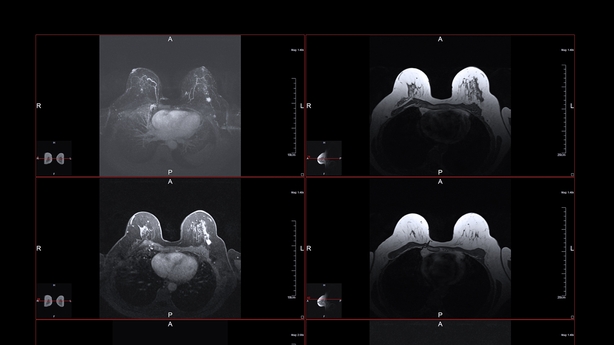Report: researchers have discovered a breakthrough in the treatment of breast cancer which may reduce the chances of relapse for those with triple negative breast cancer
Triple negative breast cancer is one of the most aggressive and difficult to treat forms of breast cancer which accounts for around 15 percent of all breast cancers diagnosed and occurs more frequently in younger women. Unlike other forms of breast cancer, there are no targeted therapies and chemotherapy is the mainstay treatment. Although initially successful, a large percentage of TNBC patients relapse within one to three years of treatment and have a poor long-term prognosis.
Scientists have now discovered a way to improve patients' response to chemotherapy by looking at the exact mechanism of the tumour relapse. They have shown that IRE1, which is a cellular stress sensor that normally acts to alleviate short-term stresses within cells, such as lack of nutrients or oxygen, is a central driver of treatment-related relapse.

Dr Susan Logue, from the Apoptosis Research Centre at NUI Galway, where the research was carried out, is first author of the study which has been published in Nature Communications journal. She said "this work has uncovered a previously unknown role for IRE1 and suggests that it may represent a good therapeutic target for the treatment of triple negative breast cancer. While further research is needed, this work is a great example of how curiosity-driven basic research can lead to translational outcomes with real potential to impact on patient treatment."
The team discovered that chemotherapy can activate the IRE1 stress response in triple negative breast cancer, leading to the production of survival signals that are pumped out of the cell to support the growth of new cancer cells. Most importantly, the study showed that this process can be halted by specifically inhibiting IRE1 using a clinically-relevant, small molecule drug called MCK8866 that not only improves the effectiveness of the initial chemotherapy treatment, but also reduces relapse of this aggressive form of breast cancer.
We need your consent to load this rte-player contentWe use rte-player to manage extra content that can set cookies on your device and collect data about your activity. Please review their details and accept them to load the content.Manage Preferences
From RTÉ Radio One's News At One, Susan Logue discusses her team's new findings
Using triple negative breast cancer cells treated with chemotherapy, the research team found that blocking IRE1 activity reduced the production of survival signals, and in turn reduced the growth of new cancer cells by 50 perfcent. Furthermore, in a pre-clinical model of TNBC, the drug increased the effectiveness of chemotherapy treatment, leading to regression of eight out of ten cancers compared to regression of just three out of ten cancers using chemotherapy alone. The combination of the MCK8866 drug with chemotherapy also reduced tumour relapse in this pre-clinical model of triple negative breast cancer.
In addition to these laboratory-based experiments, an analysis of 595 patient tumours revealed that triple negative breast cancer tumours displayed the highest IRE1 activity compared to other subtypes, suggesting that IRE1 may be of particular importance in TNBC. This discovery suggests that combining chemotherapy with IRE1 inhibitors could offer substantial benefits for triple negative breast cancer patients.
Triple negative breast cancer accounts for around 15 percent of all breast cancers diagnosed and occurs more frequently in younger women
Professor Afshin Samali, director of the Apoptosis Research Centre, said "this study is the result of extensive laboratory experiments, analysis of breast cancer patient samples, testing pre-clinical models of triple negative breast cancer and collaboration with our international and industry partners.
"The new era of precision oncology aims to tailor treatments to individual cancer patients and we are excited to identify a new therapeutic strategy for triple negative breast cancer patients who are most in need of better treatment options. Furthermore, this strategy may benefit many other cancer patients whose cancer cells rely on activated cell stress responses to survive."
The views expressed here are those of the author and do not represent or reflect the views of RTÉ


